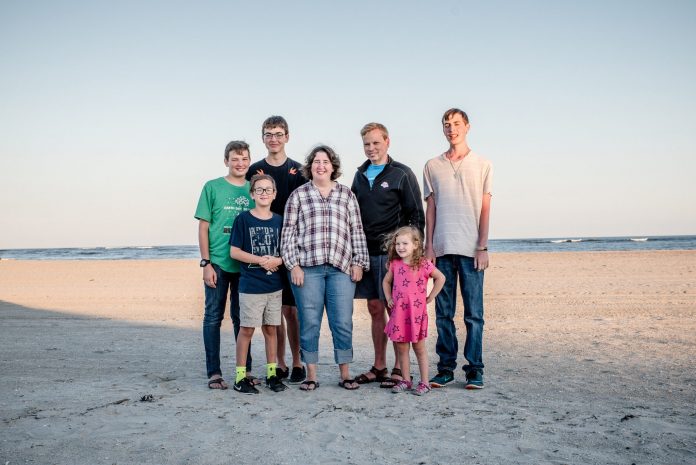The doctor insisted her son just had a cold, but Lisa Rodebaugh knew something more was wrong. After repeated visits to the doctor she was told her son Billy, who was just 6 months old at the time, just had a cold, and that all new mothers get worried.
But Billy’s fever had persisted for two months, and Rodebaugh insisted it wasn’t just a cold. After she finally convinced the doctors to take a closer look, they realized Billy had sepsis, a condition when the body’s chemical response to infection is out of balance. Billy was immediately taken to the hospital.
“They said he would not have survived if we didn’t find it soon,” Rodebaugh said. “Here we are 20 years later.”
Now the mother of five children, including the healthy Billy, the Northwood resident is a member of the editorial board for Parents Voice, an organization advocating for strong child care. She is vocal about the dangers of sepsis, encouraging any parent to listen to what their head is saying and ask questions to their doctors if anything is bothering them.
According to the CDC, 270,000 Americans die each year as a result of sepsis, including healthy babies, children and young adults. In Pennsylvania alone, there were 2,408 sepsis-related deaths in 2017. Last year in Philadelphia there were 14,227 sepsis hospitalizations, costing an average of $22,000 for each patient.
“Early signs and symptoms are the key, and they can sometimes be very subtle and hard to pick up on,” said Terri Roberts, infection-prevention specialist at Patient Safety Authority. “The longer it goes without treatment, the more likely it is there will be a bad outcome.”
Early signs include a change in mental status, including confusion, disorientation, lethargy or tiredness. With fever, patients can have clammy, sweaty skin and complain of extreme pain or discomfort. Sometimes a respiratory-tract infection will cause the patient to be short of breath or make their heart race.
Anyone can develop an infection that becomes septic, but children less than 2 years old, adults 65 years and older and people with weak immune systems are the most vulnerable.
“I tell people to seek medical attention, and if they think it may be sepsis to ask their medical provider directly. It’s hard to diagnose and can be a good idea to make others think of it,” Roberts said.
Roberts recalled when her nephew was a little boy he got a splinter under his fingernail from falling on the mulch at a playground. They knew something was wrong with him but sent him to school the next day because he didn’t have a fever.
“When he got off the bus he told the other kids to go get his mom because he felt like he was dying,” Roberts said. He ended up in the ICU but survived.
Roberts emphasized that treatment for someone with sepsis needs to begin immediately. For more information, read about the Surviving Sepsis Campaign at survivingsepsis.org. ••





